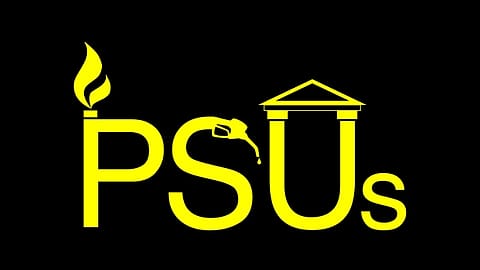Nifty PSU Bank index drops 1% on govt’s stake sale plan; SBI, BoB, PNB, BoI, Canara Bank lead fall
The Nifty PSU Bank index, which consists of 12 state-owned bank stocks, dropped 1%, led by SBI, BoB, PNB, BoI, and Canara Bank.

Shares of public sector banks (PSBs) witnessed selling pressure on Tuesday, with index heavyweights State Bank of India, Bank of Baroda, Punjab National Bank, Bank of India, and Canara Bank falling up to 2% during the trade so far. The Nifty PSU Bank index dropped 1% amid a report that the government is considering an offer-for-sale (OFS) to reduce its stake in public sector lenders to increase public participation.
Weighed down by the development, shares of State Bank of India (SBI) declined as much as 0.4%, while Bank of Baroda (BoB) share price dropped 1.2% intraday. The shares of Punjab National Bank (PNB), Bank of India, and Canara Bank were down in the range of 1-2%.
Out of 12 stocks on the Nifty PSU Bank index, four were trading higher, rising up to 4%, led by Indian Overseas Bank, Central Bank of India, Maharashtra Bank, and UCO Bank.
Meanwhile, the BSE benchmark Sensex and NSE Nifty50 were trading higher by 0.3% each.
Notably, investors seem to have lost interest in PSU bank stocks, which have corrected up to 34% in the last one year. This can be attributed to rising credit cost, weak net interest margins, and shrinking deposit market share as compared to their private peers.
Disinvestment in PSU banks
The central government has reportedly initiated the process to offload its equity in select public sector banks and listed public financial institutions (PFIs). The Department of Investment and Public Asset Management (DIPAM) has issued a request for proposal (RFP) inviting merchant bankers and legal advisors to manage the disinvestment.
Recommended Stories
The move is being seen as the government’s strategy to boost liquidity and increase public participation in state-owned PSBs and financial entities. The government is looking to dilute stake via OFS route to meet the minimum public shareholding requirement of 25% in specific public sector banks and listed financial institutions.
According to the SEBI norms, all listed entities must maintain a minimum public shareholding of 25%, though state-owned banks have been given more time until August 2026 to comply with this requirement.
As per the latest shareholding pattern available on the BSE, the government currently holds more than 90% in Indian Overseas Bank (96.38%), UCO Bank (95.39%), Central Bank of India (93.08%), and Punjab and Sind Bank (98.25%). It owns 86.46% shares in Bank of Maharashtra.
Among the state-owned financial institutions, the government currently owns 96.5% in Life Insurance Corporation (LIC), 82.4% shareholding in GIC Re (General Insurance Corporation of India), and 85.44% in New India Assurance Company.
(INR CR)
In May 2022, the government had divested 3.5% stake in LIC of India to raise about ₹21,000 crore via IPO route. As per the SEBI mandate, LIC has to achieve 10% public shareholding by May 16, 2027.
(DISCLAIMER: The views and opinions expressed by investment experts on fortuneindia.com are either their own or of their organisations, but not necessarily that of fortuneindia.com and its editorial team. Readers are advised to consult certified experts before taking investment decisions.)